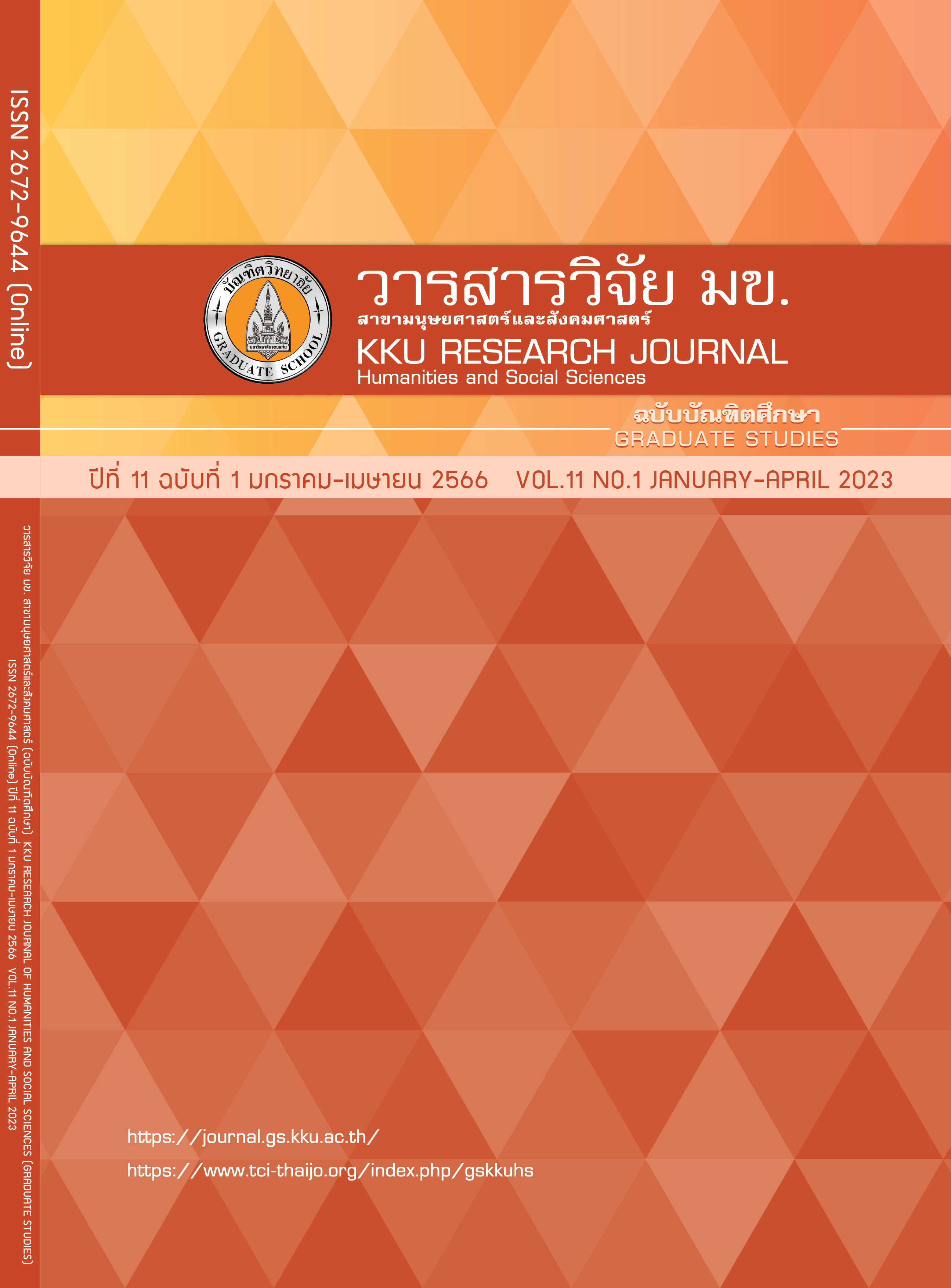Peer Helping Peer: Activities that Develop the Social Skills of Children with Autism in an Inclusive Classroom
Keywords:
Autism, Social skills, Peer helping peerAbstract
Social skills are the ability to communicate and get along with other people. conduct The tactful demeanor is socially acceptable. Having a good interaction with society around them, being responsible, knowing their own responsibilities and knowing how to express themselves appropriately to various situations. It is a basic skill that is necessary to give children a good emotional foundation. Able to develop relationships with others appropriately. Humans of all ages, when they are young, need friends to play with, friends to study with, and friends to do activities with. But these basic skills are still deficiencies of autistic children and must be helped by those around them. To find appropriate methods, such as peer-to-peer activities, with details of the activities as follows: 1) Creating knowledge about children with autism in inclusive classrooms 2) Searching for friends who know your heart 3) Peer activities find out the advantages of autistic children and the disadvantages of autistic children 4) Activities that focus on engaging children with autism 5) Activities to reinforce and thank friends in inclusive classrooms.
References
Charoenwongsak KR. Social skills. Who said they are not important [Internet]. 2008 [cited 2023 June 10]. Available from: http://www.kriensuk.com//node/1646
Pimwong TJ. A study of social skills of children with behavioral problems studying together with normal children, Prathom 5 level, who were taught by the cooperative learning method. Master of Education Thesis (Special education). Bangkok: Graduate School of Srinakharinwirot University; 1998.
Ministry of Education. Learning management for children with autism [Internet]. 2009 [cited 2023 June 10]. Available from: https://www.moe.go.th
Thongsukdee RC. Teaching materials for course 100303. Special Education. Chiang Mai: Special Education Department, Faculty of Education, Chiang Mai University; 2007.
Ratchasanukul Institute. Teacher's manual, system for caring for students in groups of special children with learning disabilities. Bangkok: Beyond Folding Leasing Company Limited; 2012.
Ratchasanukul Institute. Teacher's manual, system for caring for students in groups of special children with learning disabilities. Bangkok: Beyond Folding Leasing Company Limited; 2012.
Ratchasanukul Institute. Teacher's manual, system for caring for students in groups of special children with learning disabilities. Bangkok: Beyond Folding Leasing Company Limited; 2012.
Chano JR. Inclusive Education. MahaSarakham: Sarakham Printing; 2014.
Kasemsuk SK. Teaching social skills in primary school. Bangkok: Faculty of Education, Srinakharinwirot University; 2010.
Seniyawong Na Ayutthaya TR. Development of social skills and experiences in basic skills and experiences for primary school children, Unit 6. Nonthaburi: Sukhothai Thammathirat Open University Press; 1993.
Sararattana AC. Opening the World of Autism, 4th time, year 2010. Khon Kaen: International Wittaya Library; 2010.
Korsuwan KL. Caring for children with mild disabilities. Bangkok: Srinakharinwirot University; 2010.
Bournemouth University. Peer assisted learning [Internet]. 2002 [cited 2020 Jan 10]. Available from:
http://www.Bournemouth.ac.uk/students/library/guests-visitor-information/peer-assisted-learning-pal.
Niancharoensuk SN. Peer-assisted learning and Japanese language teaching. Journal of Japanese Studies. 2010; 27(1): 81-96.
Downloads
Published
How to Cite
Issue
Section
License

This work is licensed under a Creative Commons Attribution-NonCommercial-NoDerivatives 4.0 International License.




